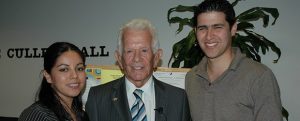Economics
The Economics of Friedrich Hayek
By Dr. Hassan Shirvani— Conservatives tend to idolize the Austrian economist Friedrich Hayek (1899-1992) in the same way that liberals like to lionize the British economist John Maynard Keynes (1883-1946). Indeed, during the Great Depression of the 1930s, the debate between the supporters of Hayek and Keynes dominated much of the academic economic scene. The…
Read MoreInvestment Banking Principles: An Inside Look at Leveraged Investing and Risk Parity
By Austin J. Matt– Forethought Leveraged investing encompasses a tier of strategies utilized by investment banks for many years. It is the “black powder” used in portfolios managed by individual investors and institutions alike. Investment Banks’ “Black Powder” The world of investment banking is home to a plethora of strategies that all aim…
Read MoreInvestor Sentiment and Global Exchange Traded Funds
By Dr. Gulfem Bayram — The exchange traded funds (ETFs) are securities that track stock indexes, commodities, or baskets of assets, and they are traded on stock markets just like individual stocks. These unique securities have become increasingly popular in recent years as they offer greater diversity and flexibility for individual investors. Rapid Growth of…
Read MoreSay Goodbye to “Homo economicus”: The New Science of Behavioral Economics
By Dr. Roger Morefield — HOMO ECONOMICUS AND PARADIGM SHIFT In his 1962 book, The Structure of Scientific Revolutions, Thomas Kuhn described the process of what he called “paradigm shift,” which is a change in the basic assumptions underlying a science. Recent advances in the theory of consumer behavior have allowed the new science…
Read MoreA Primer on Keynesian Economics
By Dr. Hassan Shirvani —Before John Maynard Keynes published his General Theory of Employment, Interest, and Money in 1936, the prevailing view among most economists was that modern economies are characterized by perfectly competitive markets, in which flexible prices and wages cleared all markets and, hence, ensured continuous full employment. Pointing to the Great Depression…
Read MoreLa Paradoja que Es Colombia
Escrito Por Dr. Roger Morefield –- Bienvenidos a la “Nueva Colombia” (Read this post in English) Basado en el Ingreso Nacional Bruto per cápita (INB), Colombia llena los requisitos del Banco Mundial que la catalogan como un país de ingreso medio alto. Aun así, todavía tiene características de un país en desarrollo de bajos ingresos.…
Read MoreThe Invisible Link Between Trust, Profits, And Prosperity
By Miguel Martinez-Zavala — Businesses worldwide are facing tough challenges. The European Union’s economic problems, and increasing uncertainty, are driven by unforeseen events. Such events include: the Ukraine’s crisis, the sociopolitical volatility of the Middle East and its subsequent global economic effects, and the feeble U.S. economic growth that seems to be the new norm.…
Read MoreThe Best Lesson I Have Ever Learned From A Wise Man: The Significance of Intellectual Humility
By Miguel Martinez-Zavala — It was during the spring of 2011, and while I was waiting outside the Cameron School of Business office for one of my MBA classes to start, when I asked a classmate who was the person on the wheelchair getting into the Malloy Hall building. “He is Prof. Whitney,” he replied.…
Read MoreThe Wizard of Oz as a Monetary Allegory
By Dr. Hassan Shirvani — Since the Chicago journalist L. Frank Baum published his The Wonderful Wizard of Oz in 1900, the book has become one of the most beloved American tales of adventure. Millions of both children and adults have taken great pleasure in reading about Dorothy, a little girl living in the midst…
Read MoreThe Paradox That is Colombia
By Dr. Roger Morefield —- Welcome to the “New Colombia” (Read this post in Spanish) Based on its per-capita Gross National Income (GNI), Colombia meets the World Bank criteria for classification as an upper middle income country. But it still has many of the earmarks of a low-income developing country, including its high poverty rate…
Read More







